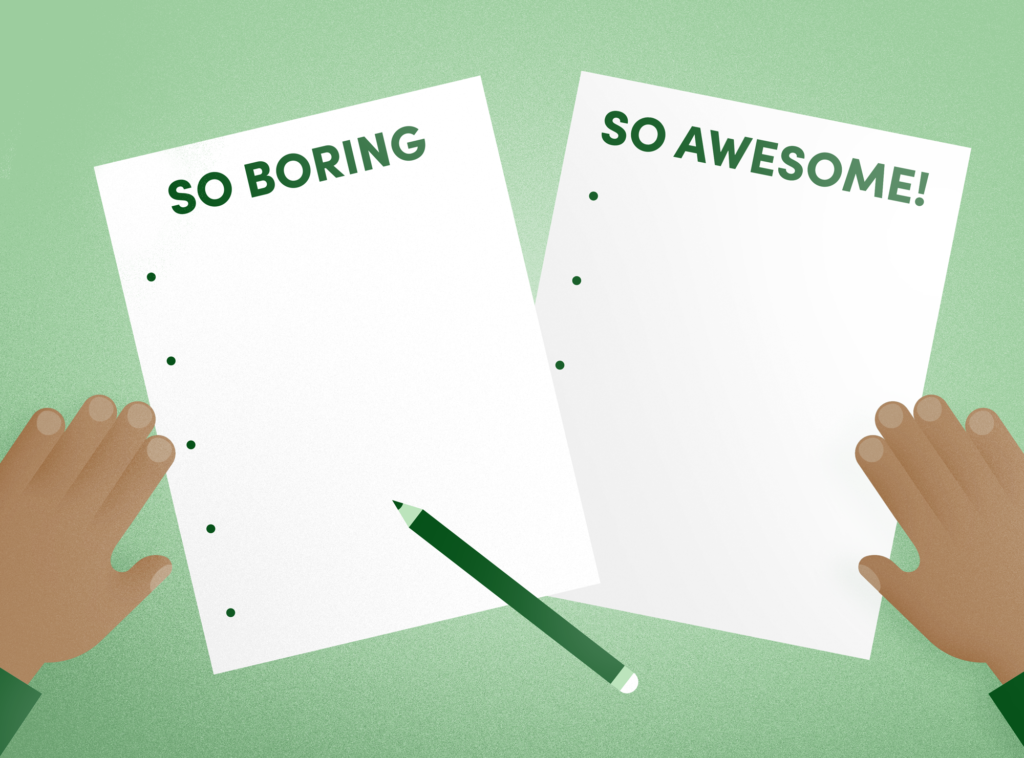
“I’m so bored!!!”
I remember saying this—nearly shouting it—as a teenager, especially during summer vacation. All year long, I’d look forward to the freedom of doing whatever I pleased. And yet, within a week or two, waking up late, watching television all day, and “doing nothing” would morph, and what was once thrilling became tedious.
What is boredom?
The foremost authority on this fascinating topic is psychologist Erin Westgate. Boredom, she explains, is the emotion we experience when we’re either unwilling or unable to engage our attention in meaningful activities.
At first blush, this may seem obvious. But the profound insight here is that there are two entirely separate routes to boredom. Sometimes, we’re bored because what we’re doing seems pointless. Sadly, this is how a lot of students feel about schoolwork: Why am I learning this? Who cares?
The less obvious path to boredom has to do with difficulty. Even when it’s obviously important, we feel bored when we sense that what we’re doing is either too easy or too hard. This is one reason I’m such a fan of technologies that adjust the difficulty level of exercises to the individual student. For examples, check out Khan Academy, Zearn Math, and Leap Innovations.
What is boredom trying to tell us?
Boredom is a signal that we’re wasting time and need to pivot. Thank goodness kids are capable of boredom. How else would they know that they should change things?
The key, Westgate advises, is to respond to the emotion of boredom optimally.
Don’t let bouts of boredom go to waste. Binge-watching Netflix, for example, captures your attention but provides a sense of meaning that, like junk food, is only fleetingly satisfying. Video games, which are cleverly designed to keep you in the sweet spot between too easy and too hard, don’t satisfy the need to feel useful to people other than yourself.
Do think of boredom as your brain’s way of signaling that something needs adjusting. And if the young people in your life need help mapping a route from boredom to engagement, lend them a hand. Suggest making a “so boring” list of daily activities and then another list of activities they consider “so awesome!” Together, see if you can detect a pattern that provides inspiration for summer planning. I guarantee that thinking about what does and doesn’t bore us is, well, fascinating.
With grit and gratitude,
Angela
